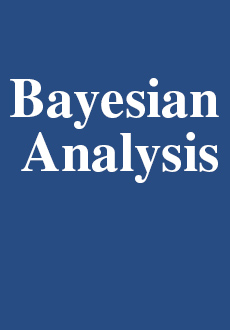Abstract
We introduce a computationally efficient Bayesian model for predicting high-dimensional dependent count-valued data. In this setting, the Poisson data model with a latent Gaussian process model has become the de facto model. However, this model can be difficult to use in high dimensional settings, where the data may be tabulated over different variables, geographic regions, and times. These computational difficulties are further exacerbated by acknowledging that count-valued data are naturally non-Gaussian. Thus, many of the current approaches, in Bayesian inference, require one to carefully calibrate a Markov chain Monte Carlo (MCMC) technique. We avoid MCMC methods that require tuning by developing a new conjugate multivariate distribution. Specifically, we introduce a multivariate log-gamma distribution and provide substantial methodological development of independent interest including: results regarding conditional distributions, marginal distributions, an asymptotic relationship with the multivariate normal distribution, and full-conditional distributions for a Gibbs sampler. To incorporate dependence between variables, regions, and time points, a multivariate spatio-temporal mixed effects model (MSTM) is used. To demonstrate our methodology we use data obtained from the US Census Bureau’s Longitudinal Employer-Household Dynamics (LEHD) program. In particular, our approach is motivated by the LEHD’s Quarterly Workforce Indicators (QWIs), which constitute current estimates of important US economic variables.
Citation
Jonathan R. Bradley. Scott H. Holan. Christopher K. Wikle. "Computationally Efficient Multivariate Spatio-Temporal Models for High-Dimensional Count-Valued Data (with Discussion)." Bayesian Anal. 13 (1) 253 - 310, March 2018. https://doi.org/10.1214/17-BA1069
Information





